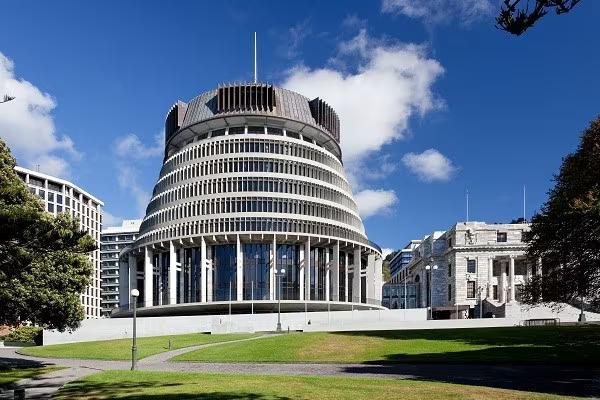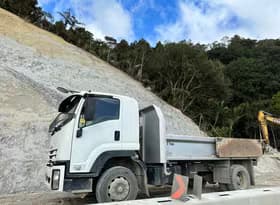
Plenty to keep the incoming government occupied
This opinion piece was first published on Stuff on 31 October 2023.
The final vote counts and seat allocations from the election will be released this Friday, confirming whether NZ First is part of the next government and, if so, how much power they have. Although formal coalition talks have yet to begin, more informal conversations between the parties are ongoing, and National will already be compiling the key policies to feed into its expected mini-Budget in December. Given the issues that were dominating voters’ thinking in the lead-up to the election, what might be at the top of the new government’s to-do list?
Cost-of-living pressures have been the most important theme for voters throughout this year. Despite the rhetoric, many of these cost pressures are a legacy of the COVID-19 pandemic and the resulting economic response, meaning the government can’t do a lot to address them directly. Nevertheless, many respondents to the most recent NZ Issues Monitor by Ipsos thought tax changes should put more money back in middle-income earners’ pockets.
Although questions have been raised about the affordability of National’s proposed adjustments to the income tax thresholds, it’s worth noting that they are nowhere near full compensation for inflation over the last decade. In fact, National’s changes would offset only about 30% of the increase in average wages since the current thresholds were set back in 2010. Indexing the thresholds to inflation going forward shapes as an important shift in the way we think about tax in this country, and this change would force governments to be more transparent about their spending priorities when making the case to raise or lower taxes.
For some, the biggest cost-of-living squeeze is the surge in mortgage rates to their highest levels in more than a decade. Of course, interest rates are set by the Reserve Bank and are therefore outside the government’s direct control. However, there’s been a distinct lack of coordination between fiscal and monetary settings over the last two years, with interest rates being hiked to quell demand at the same time as government spending has continued almost unabated.
Looking forward, a more restrained spending approach will be needed if revenue is foregone by adjusting the income tax thresholds. If the new government can pare back spending, it is likely to weigh heavily on economic activity in Wellington. However, it might also provide more scope for interest rate cuts by the Reserve Bank in 2025 than Labour’s easy-spending approach.
But talk of spending cuts also has many people worried. Healthcare funding has failed to keep up with demand for services throughout much of the last 15 years as the population has expanded rapidly, in terms of both over-65-year-olds and the total people of needing to be supported. Pay rates for healthcare workers remain low compared to overseas, making it difficult to retain staff. Significant capital expenditure is also necessary to upgrade or replace several hospitals that are past their use-by date, which doesn’t occur quickly at the best of times, as Dunedin Hospital shows.
Other areas demanding action include education, justice, and infrastructure. New Zealand’s education outcomes are in a long-term downward trend by global standards, doing nothing to improve this country’s mediocre productivity performance. Tertiary education is also in a state of flux, struggling with lower student numbers and uncertainty about whether the Reform of Vocational Education has accomplished the improvements and efficiencies it set out to achieve.
Law and order was identified as the second most important problem in the most recent NZ Issues Monitor. Although prison should generally be the last option for dealing with offenders, there must be concerns that the push to reduce prisoner numbers throughout the last five years has contributed to an increase in crime, with victimisations up 37% between 2018 and 2022. The answers are not simple, but increased police numbers, improvements to the rehabilitation process, or imposing harsher sentences will all cost more to implement.
New Zealand’s infrastructure needs also remain under the spotlight, as the policy focus looks set to swing from public transport, rail, and cycling back towards roads. Work we completed for Infrastructure New Zealand showed that frequent changes in priorities have created uncertainty and inefficiencies in the infrastructure sector. Given the breadth of New Zealand’s infrastructure issues, and questions about the availability of funding at both a central and local government level, a more coordinated approach is necessary to ensure our infrastructure assets remain fit for purpose.
Discussion about infrastructure also links with an area that has temporarily slipped off the radar – the affordability of housing. But house prices remain high relative to incomes, current mortgage rates mean that debt servicing is expensive, and the waiting list for state housing is more than seven times longer than it was back in 2015. Cross-party agreement around housing densification has given way to National’s desire to free up more land and ensure infrastructure bottlenecks do not limit the supply of new homes. Record high net migration might be addressing skills shortages in the labour market, but it is also boosting housing demand and threatens to exacerbate housing affordability issues again in coming quarters.
Alongside these issues lies the increasingly critical problem of climate change. Labour’s climate change policies were sometimes piecemeal, but its approach was still more comprehensive than any government had managed over the previous 30 years. There is a risk the new government fails to make further progress in this area, using its rural support base and New Zealand’s minor place on the global stage as excuses for stalling.
It's a long and difficult list, and one that definitely won’t get fully solved in Nationals’ 100-day plan – or even fully survive coalition talks. But after an uninspiringly negative election campaign, Kiwis will be hoping for the new government to set a positive policy direction – not one that is blindly based around doing the opposite of what “that other lot” did for the last six years. Ultimately, delivery will also be key, and was one of the reasons Labour was punished at the polls a couple of weeks ago.








